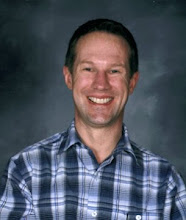There are two kinds of empathy, just as there are two kinds of everything here. There is the empathy of the ego and of Spirit. The ego variety is the kind that most people think of as the correct definition. (Again, the default setting of the world is ego.)
Ego empathy is where a person believes he is suffering and another person agrees and tries to be supportive. "Life is being mean to you right now, and I will be by your side to listen, to give advice, and maybe I can help you to feel better, too." People who behave this way are viewed as kind, as good friends. From the perspective of the world and ego, this is exactly how we 'should' behave with our fellow human beings. We support them in their suffering, and they support us in ours.
Looking at the empathy of the world from a non-dualistic perspective, however, a very different picture emerges. First, the premise of the world's empathy is that the two people agree that the suffering is real. This is what holds the ego thought system together: agreement. An agreement is a tacit statement, a proclamation, a pronouncement. When one person makes such a statement, it can be seen as an individual point of view; but when another person agrees with it, this strengthens it and makes it seem more real. By making suffering seem real, we make God seem more UNreal; there is no suffering in God, for a perfect creation cannot suffer.
Second, while an individual situation may seem to improve because of this kind of empathy, suffering will never be completely eliminated. Indeed, this kind of empathy may actually CAUSE other forms of suffering! (Minor example: I didn't show up for our family gathering because my friend's pet died, and she needed my support. Consequently, I helped my friend to feel better, but now my family feels neglected.)
Third, empathy of the ego conceals a darker and more diabolical purpose. When two people agree suffering is real and one of them supports the other in suffering, it can easily be seen as an alliance of sorts. "I'm supporting you right now, but the time will come when the suffering will be on MY side, and I will expect YOU to be there for ME." Bluntly, our 'being there' for others is not without strings attached; we give in order to get.
Ick. So what is the alternative? Is there another way to see suffering? Is there a different approach to empathy? Yes! I'm glad you ASKed!
Spirit can use suffering just as ego can. When Spirit sees suffering it sees it as an appearance of something that is not of God. Since only God is Real, suffering cannot be real. Now this is not something we say out loud to our friends when they are hurting; that would be vicious! It's an attitude that we hold within our minds. "I can see that you believe you are suffering, and you are believing this not because of the present situation, but because of your definition of what you are." Non-dualistic thought sees the entire premise of the world and human life as an error: we define our self as something not of God. This has to lead to a perception of a self that can victimize and be victimized.
Outwardly, the actions may seem very similar. But inwardly, a very different approach is being utilized; an approach that exposes the ego thought system for the fraud that it is.
As written before, times of suffering are often our best chance to get away from statements and change over to questions. Questions open the mind, while statements close it. A friend who studies non-dualism can facilitate this shift; but only if he keeps truth foremost in his own mind. When a friend believes that his suffering is real, this is a time for me to be present, to remind myself that there can be no suffering in God, and to ASK for Spirit to use me to help communicate this to the mind of my fellow human being. Often, in a supportive role, a suffering person can be encouraged to ASK for a different perspective. "Are you sure you're seeing this situation accurately? Maybe there's another way of looking at this." Even if the suffering person isn't ready for those questions to be spoken, the supportive friend can ASK those questions in his OWN mind on behalf of the other. (Remember, there's no separation in God, either; there's only ONE mind.)
One last thing. This is not something you can fake. Merely denying suffering is not helpful, and may even foster more separation and attack. This is why our own individual spiritual practices are so important. By continually working on your own perceptions and thoughts, ASKing your own questions, opening your own mind, having your own illusions corrected, you are not just helping yourself to be more aware of peace, but you are also putting your self and your life into position to be utilized as a tool to help others. Empathy of the Spirit is the kind that St. Francis was talking about when he wrote, "Lord, make me an instrument of Thy Peace."

